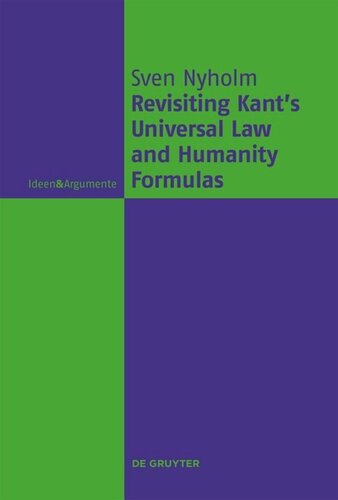

Most ebook files are in PDF format, so you can easily read them using various software such as Foxit Reader or directly on the Google Chrome browser.
Some ebook files are released by publishers in other formats such as .awz, .mobi, .epub, .fb2, etc. You may need to install specific software to read these formats on mobile/PC, such as Calibre.
Please read the tutorial at this link: https://ebookbell.com/faq
We offer FREE conversion to the popular formats you request; however, this may take some time. Therefore, right after payment, please email us, and we will try to provide the service as quickly as possible.
For some exceptional file formats or broken links (if any), please refrain from opening any disputes. Instead, email us first, and we will try to assist within a maximum of 6 hours.
EbookBell Team

5.0
30 reviewsThis book offers new readings of Kant’s “universal law” and “humanity” formulations of the categorical imperative. It shows how, on these readings, the formulas do indeed turn out being alternative statements of the same basic moral law, and in the process responds to many of the standard objections raised against Kant’s theory. Its first chapter briefly explores the ways in which Kant draws on his philosophical predecessors such as Plato (and especially Plato’s Republic) and Jean-Jacque Rousseau. The second chapter offers a new reading of the relation between the universal law and humanity formulas by relating both of these to a third formula of Kant’s, viz. the “law of nature” formula, and also to Kant’s ideas about laws in general and human nature in particular. The third chapter considers and rejects some influential recent attempts to understand Kant’s argument for the humanity formula, and offers an alternative reconstruction instead. Chapter four considers what it is to flourish as a human being in line with Kant’s basic formulas of morality, and argues that the standard readings of the humanity formula cannot properly account for its relation to Kant’s views about the highest human good.